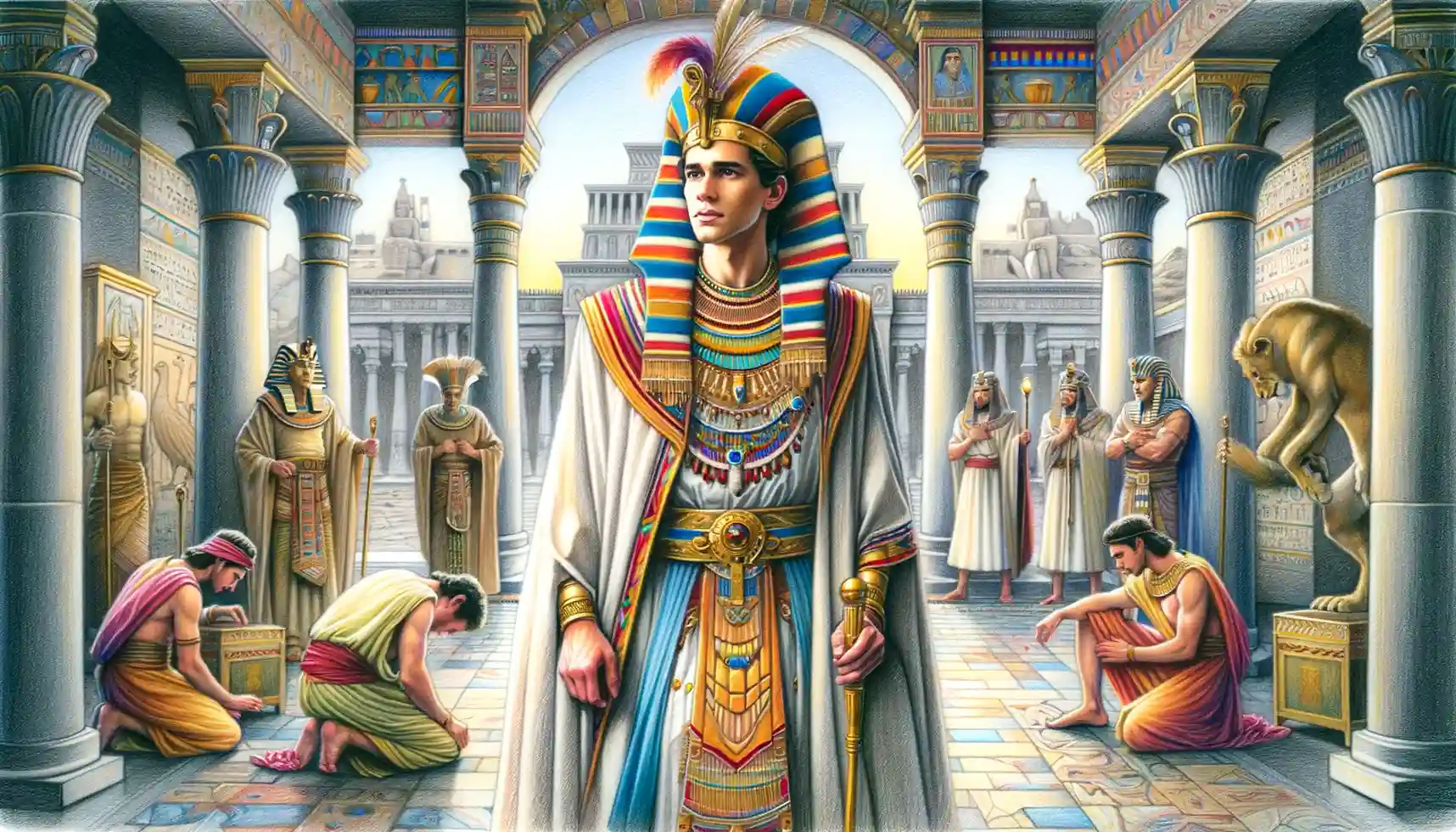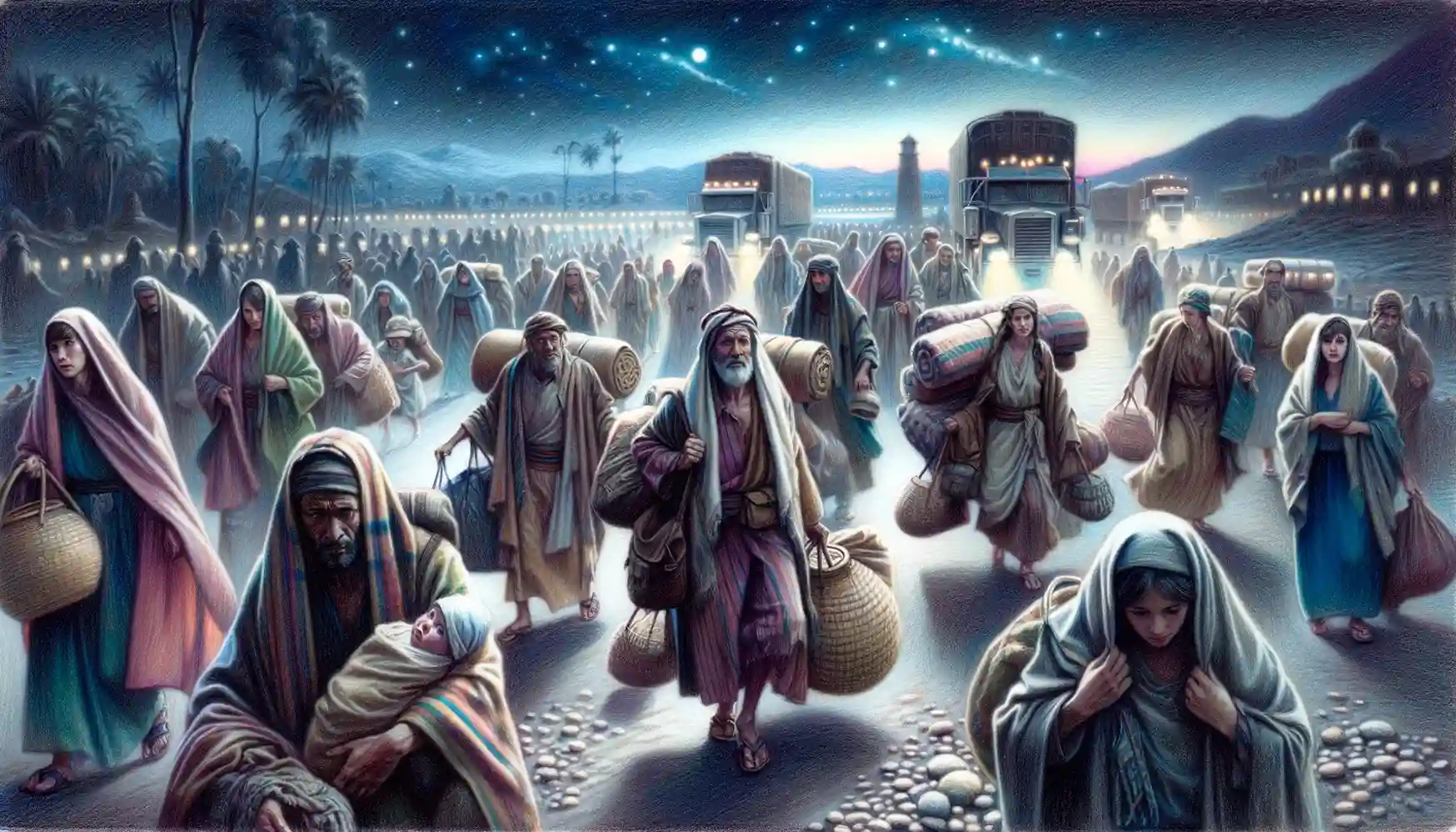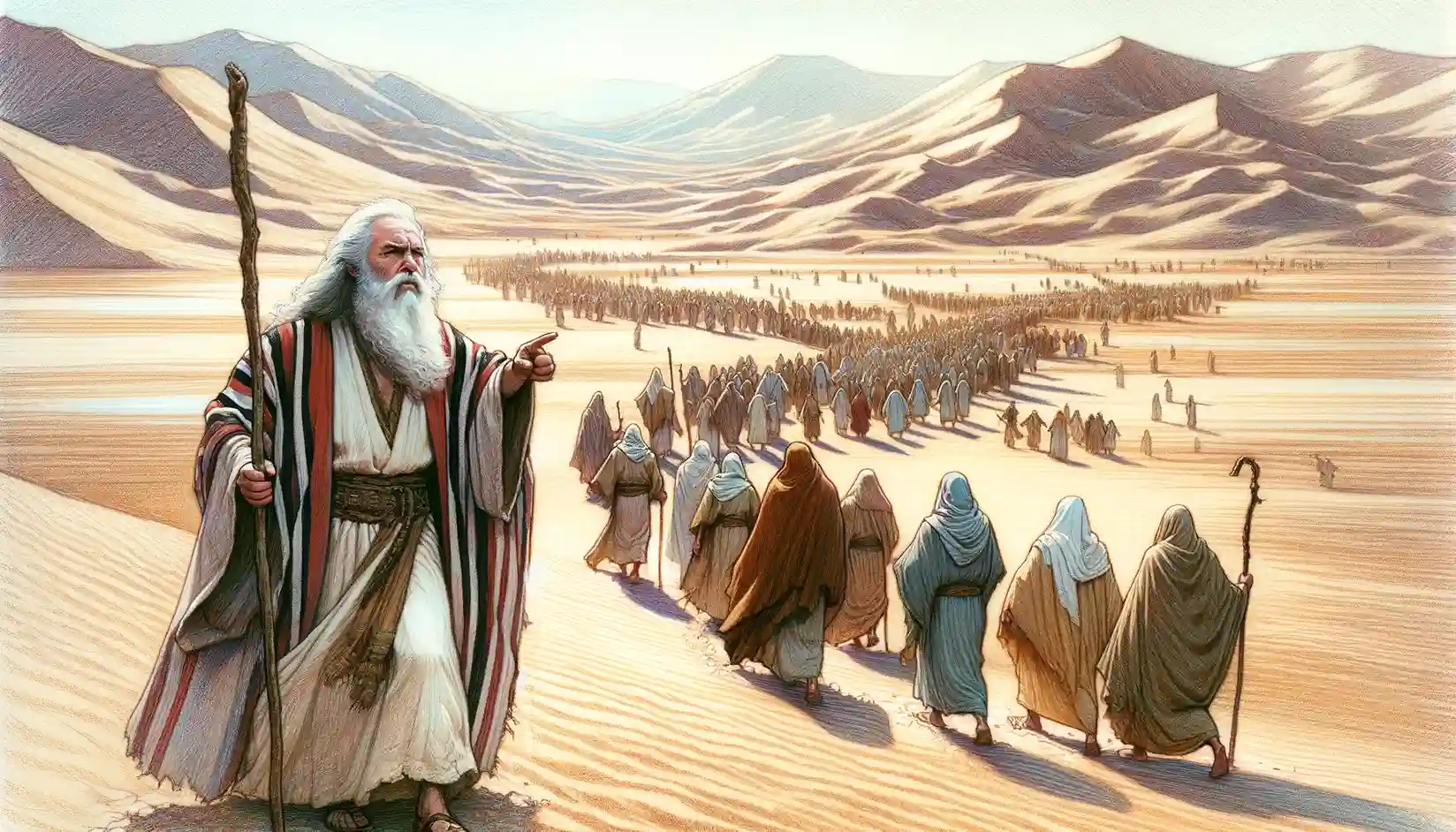Joseph, the favored son of Jacob, known for his colorful coat and prophetic dreams, was sold into slavery by his brothers, rose to power in Egypt by interpreting dreams, and ultimately forgave and reconciled with his family, providing for them during a severe famine.
In Exodus 12:31-42, the narrative details the momentous night of the Israelites’ departure from Egypt, marking their liberation from slavery after 430 years, as Pharaoh, compelled by the devastating plagues, urgently commands Moses and Aaron to lead their people out. This passage highlights the beginning of the Exodus, the institution of the Feast of Unleavened Bread, and the fulfillment of God’s promises, capturing a pivotal turning point where the Israelites leave with the riches of the Egyptians, signifying their transition from slavery to freedom under divine guidance.
The Book of Exodus chronicles the deliverance of the Israelites from slavery in Egypt, their covenant relationship with God at Mount Sinai, and their journey towards the Promised Land, emphasizing God’s faithfulness and the formation of a holy nation under His laws.



